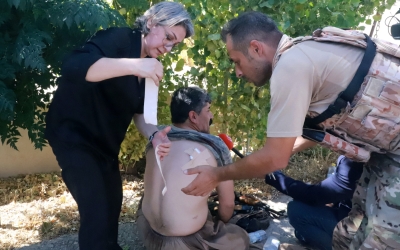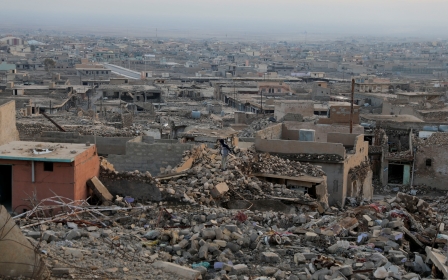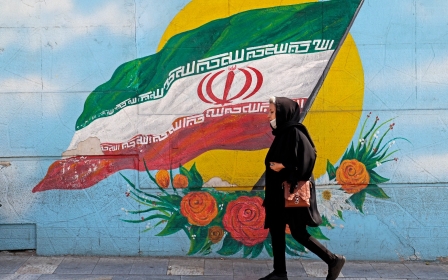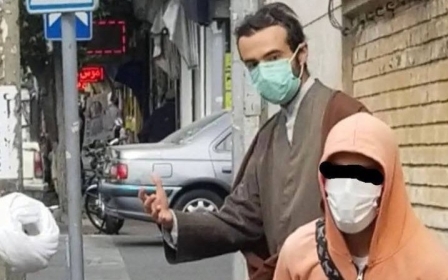Iran renews deadly missile and drone attacks on Kurdish groups in Iraq
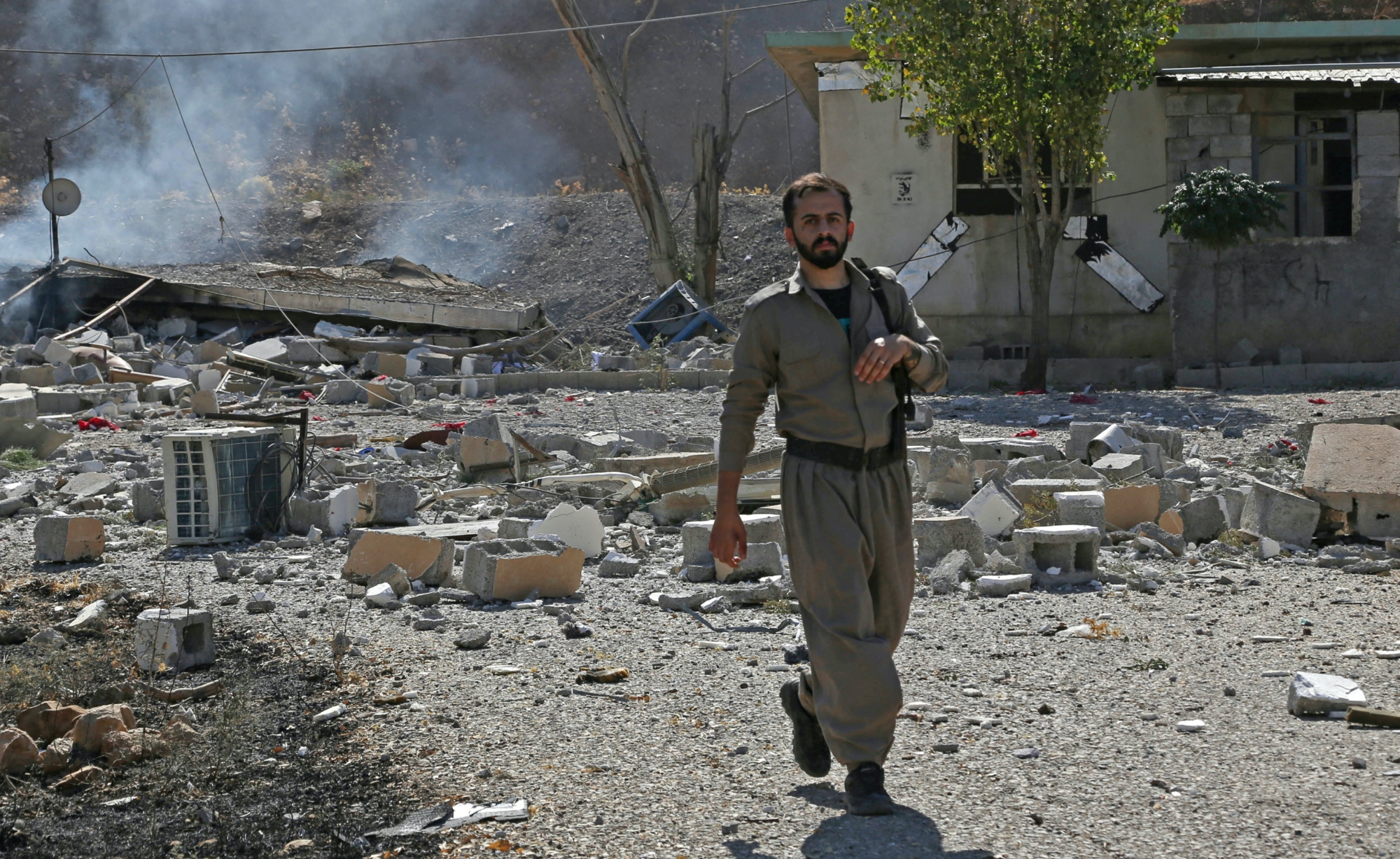
Iran’s Islamic Revolutionary Guard Corps (IRGC) on Monday renewed its attacks on Iranian-Kurdish targets inside Iraq's Kurdistan region with missiles and drones, killing two Kurdish fighters in the town of Koya, a local official told Middle East Eye.
Iranian forces attacked the headquarters of the Democratic Party of Iranian Kurdistan (PDK-I) near Koya and launched a drone attack on the headquarters of the Komala Toilers Party of Kurdistan in Zargwez, near Sulaymaniyah, the PDK-I said in a statement.
'The regime is trying to divert attention from its failure to oppress the people, and hence it is taking revenge on Iran’s opposition Kurdish parties'
- Mohammed Saleh Qadri, KPD-I
“According to the information that we have received from the medical centre, two of our comrades have been martyred, and five or six others were wounded," PDK-I representative in Erbil, Mohammed Saleh Qadri, told MEE.
A report by the Kurdish human rights watchdog Hengaw identified the dead fighters as Rebwar Abdi from Saqqez and Aso Tawana from Bukan, adding that at least 10 people were wounded, two with severe injuries.
In late September, the IRGC killed at least nine people in attacks on Iranian Kurdish opposition parties, which Tehran accuses of stoking unrest at home, in the Kurdistan region of Iran.
The attacks come amid continued protests in Iran over the death of 22-year-old Iranian-Kurdish woman Mahsa Amini at the hands of Iran’s morality police in Tehran on 16 September.
“After almost two months of uprising in Iran, the regime is trying to divert attention from its failure to oppress the people, and hence it is taking revenge on Iran’s opposition Kurdish parties,” Qadri said.
“The regime also aims to present a narrative that the nationwide protests are only limited to the Kurdish areas or Baluch region – accusing them of ‘separatism’.
“On the other hand, the regime is c0ntinously trying new types of its ballistic missiles in these attacks, as [a test] for later use in other parts of the Middle East and to destabilise the security situation in the Kurdistan Region and Iraq.”
Qadri called on the international community to take a firm position against the attacks, which have so far been condemned by the US and the UN agency in Iraq, Unami.
'They want us to start a war'
Kako Alyar, the head of Komala's central committee, told MEE that Iran is trying to put the blame on forces "outside of the country".
“In their media, they have blamed Komala and other parties for having sent weapons and Peshmerga inside Iran, which is completely false information," Alyar said, referring to Iraq's Kurdish regional armed forces.
"We have not sent anyone, but we are backing people, our underground organisation is among the people.
“We are encouraging people to take to the streets and organise protests, but no weapons and no Peshmerga have been sent inside the country.”
Alyar added that Iran has reportedly said it will continue its attacks and is pressuring the Kurdistan Regional Government (KRG) to disarm Iranian Kurdish parties.
“Even after the last attack, they wanted us to [retaliate] to start a war, but we didn't do anything because we don't want to start a war, but want peaceful demonstrations,” he said.
'We are encouraging people to take to the streets and organise protests, but no weapons and no Peshmerga have been sent inside the country'
- Kako Alyar, Komala
Khalil Nadri, a spokesperson for Kurdistan Freedom Party (PAK), an Iranian Kurdish group that fought against the Islamic State alongside Iraqi Kurdish forces, said that Iranian surveillance drones flew over their camps on Monday.
Iranian state television channel Press TV reported that Tehran has on numerous occasions warned Kurdish authorities in Iraq that it will not tolerate the presence of Iranian Kurdish opposition groups, which it has labelled as "terrorist", along its northwestern borders.
“Iran will not remain silent in the face of threats to its territorial security, especially those being posed by separatist groups to border areas, and will defend its security,” the Iranian foreign ministry spokesperson Nasser Kanani told reporters on Monday, Press TV reported.
Iran first used ballistic missiles in Iraq against Iranian Kurdish opposition parties in the Koya district in September 2018.
Middle East Eye propose une couverture et une analyse indépendantes et incomparables du Moyen-Orient, de l’Afrique du Nord et d’autres régions du monde. Pour en savoir plus sur la reprise de ce contenu et les frais qui s’appliquent, veuillez remplir ce formulaire [en anglais]. Pour en savoir plus sur MEE, cliquez ici [en anglais].


